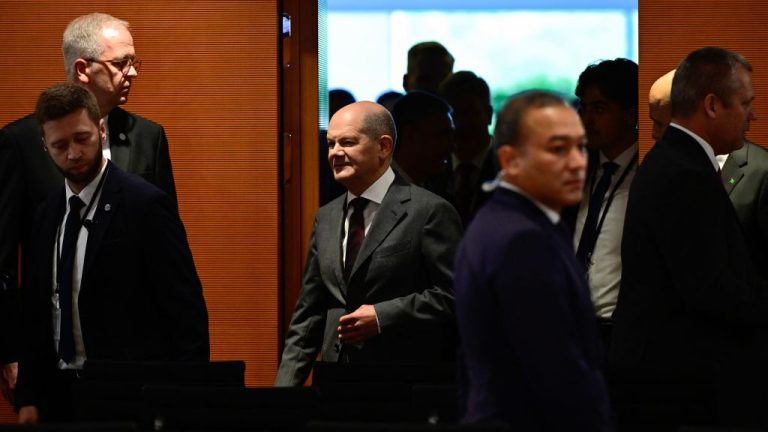Germany has agreed on a strategic partnership with the five former Soviet republics of Kazakhstan, Kyrgyzstan, Tajikistan, Turkmenistan, and Uzbekistan in Berlin to “strengthen and enhance” cooperation between those countries and the central European power.
According to a joint statement published after the first summit meeting between Chancellor Olaf Scholz (SPD) and the heads of state, the strategic partnership should focus on the economy and energy, climate and environment, regional cooperation, and direct exchange between citizens.
Moreover, “cooperation in promoting respect for human rights and fundamental freedoms” was now included in the joint declaration, as was the importance of the rule of law and an independent judiciary.
The human rights clause is striking because some Central Asian republics have also come under international criticism for serious human rights violations.
READ MORE:
- Germany, EU Race to Fix Energy Crisis
- Many Western Brands Still Available in Russia Despite Sanctions
- Russian-led Troops Enter Kazakhstan to Quell Unrest; ‘Dozens Dead’
- CCP Agents Harassing and Deporting Uyghurs From Foreign Lands
Success
You are now signed up for our newsletter
Success
Check your email to complete sign up
Gas-rich Turkmenistan, for example, is considered an isolated dictatorship. On the summit’s sidelines, a declaration of intent was signed for a migration agreement with Kyrgyzstan to facilitate the recruitment of skilled workers and the return of people without the right to remain from Germany to Kyrgyzstan. There is already such a declaration of intent with Uzbekistan.
For a long time, from a German perspective, the region was in the shadow of the two major powers, China and Russia, on which the interest of the German economy was concentrated.
With the war in Ukraine, however, Russia is no longer Germany’s most crucial energy supplier, and the five Central Asian states, with a total population of almost 80 million, are rich in raw material deposits.
As the region’s most robust economy, Kazakhstan is already supplying the refinery in Schwedt, Brandenburg, with oil and compensating for the cut in Russian deliveries. Kazakhstan also has uranium, iron ore, zinc, copper, and gold and is considered a potential partner for producing hydrogen from renewable energies.
Germany-Central Asia Summit marks a trend
This is the first time there has been a Central Asia summit with an EU member state like the one in Berlin. US President Joe Biden, on the other hand, had already met with all five presidents on the sidelines of the UN General Assembly.
For them, intensifying relations with the West is a balancing act. On the one hand, they are closely linked economically with Russia. On the other hand, they need to uphold their reputation for lambasting the Russian invasion of Ukraine and voice their support for the sanctions against Russia.
Scholz, on his part, ostentatiously praised Kazakh President Kassym-Schomart Tokayev on Thursday after a meeting. The German Chancellor said it was “good and helpful” that the Kazakh government had taken measures to prevent sanctions evasion.
Meanwhile, exports from Central Asian states such as Kazakhstan to Russia have only increased significantly since the start of the Ukraine war and thus allow companies from Western countries to trade with Russia just the same and circumvent economic sanctions against Russia, albeit through these countries.
The Russian Foreign Ministry criticized the fact that Western sanctions against Moscow were brought up in the conversation between Scholz and Tokayev.
The Ministry said that Russia is confident it can continue its practical economic cooperation and good neighborly relations with Kazakhstan without “negative interference” from outside.
There is also a strategic partnership between Kazakhstan and Russia. Russia expects no one from outside to interfere, the ministry told the Russian state news agency Tass. Kazakhstan relies on the transit country Russia to pump its oil to Germany.

















